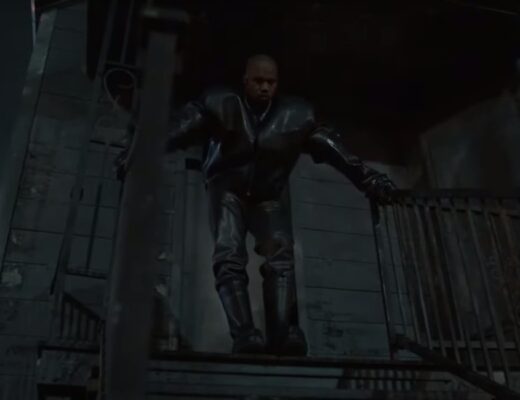Though recent Palme d’Or wins for Parasite and Titane might point to a changing landscape, Cannes has never been a particularly genre-friendly festival. Most selections in this vein have either been the diverting projects of some already well-established auteurs, or the various, out-of-competition world premiere slots frequently given to American blockbusters. The introduction of a Midnight section, around a decade ago, should have been an olive branch to genre fans and a path for the festival to keep up with similar popular sidebars at Sundance and Toronto. But the paltry offerings have usually also been of lackluster quality. The section doesn’t hold a candle to that of its North American counterparts — and as such, the placement of Kennedy, the new film from Gangs of Wasseypur director Anurag Kashyap (whose films have played Director’s Fortnight in the past), feels less like categorization than damnation. And sure enough, that’s a warning that’s well worth heeding: Kennedy is hollow garbage, an overlong slog that manages the dubious feat of being lightweight and ponderous simultaneously.
Set in Mumbai, against a resurgent wave of Covid-19 — an offhand reference to Dune places the action more precisely at the tale end of 2021 — Kennedy follows Uday Shetty (Rahul Bhat), an ex-cop who, having faked his death six years ago, now works for the police commissioner as a clandestine hitman under the film’s eponymous name. The bodies have piled up over the years, but Shetty is no closer to his goal of taking revenge on a gangster named Saleem; his mounting frustration is the primary motivator for the film’s action. There are small twists throughout, and new characters pop up to add wrinkles to the story, but for the most part, this is all Kennedy is: a simple revenge story starring an unsympathetic killer cop who never manages to be even slightly compelling.
Were this some aesthetic treat of a brutal action flick, there might still be some entertainment value here. But Kashyap’s direction is unexceptional and largely stylized. The film’s opening briefly flirts with the signifiers of post-Tarantino cool — hip music, moody lighting, an old-school yellow title card that reads “Rahul Bhat Is Kennedy” — but soon drops the pretense in favor of being a by-the-numbers crime movie. Likewise, Shetty is not the sort of athletic hitman typical of action movies, but rather just a plodding killing machine. He’s good at murder and his taste for it is perhaps the only intriguing bit of personality he’s allowed. The role was originally written for Tamil megastar Vikram (real name: Kennedy John Victor), and while he might have brought something more to the character than Bhat manages here, there’s not much potential in this script to begin with.
Kashyap’s attempts at pathos and social commentary frustrate even more. Shetty kills for fun and says as much in a flashback to his days on the force, but he’s haunted by his victims throughout. There is little to indicate remorse on his part, though the ghosts provide commentary in the form of overwrought philosophical questions about the nature of death and Shetty’s many sins. The back half of Kennedy is so leaden with this type of voiceover that it becomes hard not to try and tune it out — much the same way that Shetty, who remains completely unchanged by the film’s end, clearly does. The only other space for the character to grow is in his interactions with his abandoned family, whom he watches via CCTV footage from afar, seemingly desperate for reconciliation. This subplot fares better than the question of conscience and allows for some of the only climactic narrative beats that work. Even this, however, can’t overcome the level of disinterest the film has invited elsewhere.
From the soliloquies and music about police violence to the constant presence of Covid, it’s clear that Kashyap intends for Kennedy to say something about the state of contemporary India. But like the main character’s psychology, these statements are murky, confused, and playing second fiddle to the film’s cut-rate crime plot. Kennedy’s Mumbai is clearly a city in crisis, but what Kashyap has to say about it, if anything — beyond fatalist discontent — is as unclear as why he chose this turgid mess of a movie through which to express it.
Published as part of InRO Weekly — Volume 1, Issue 21.5.







